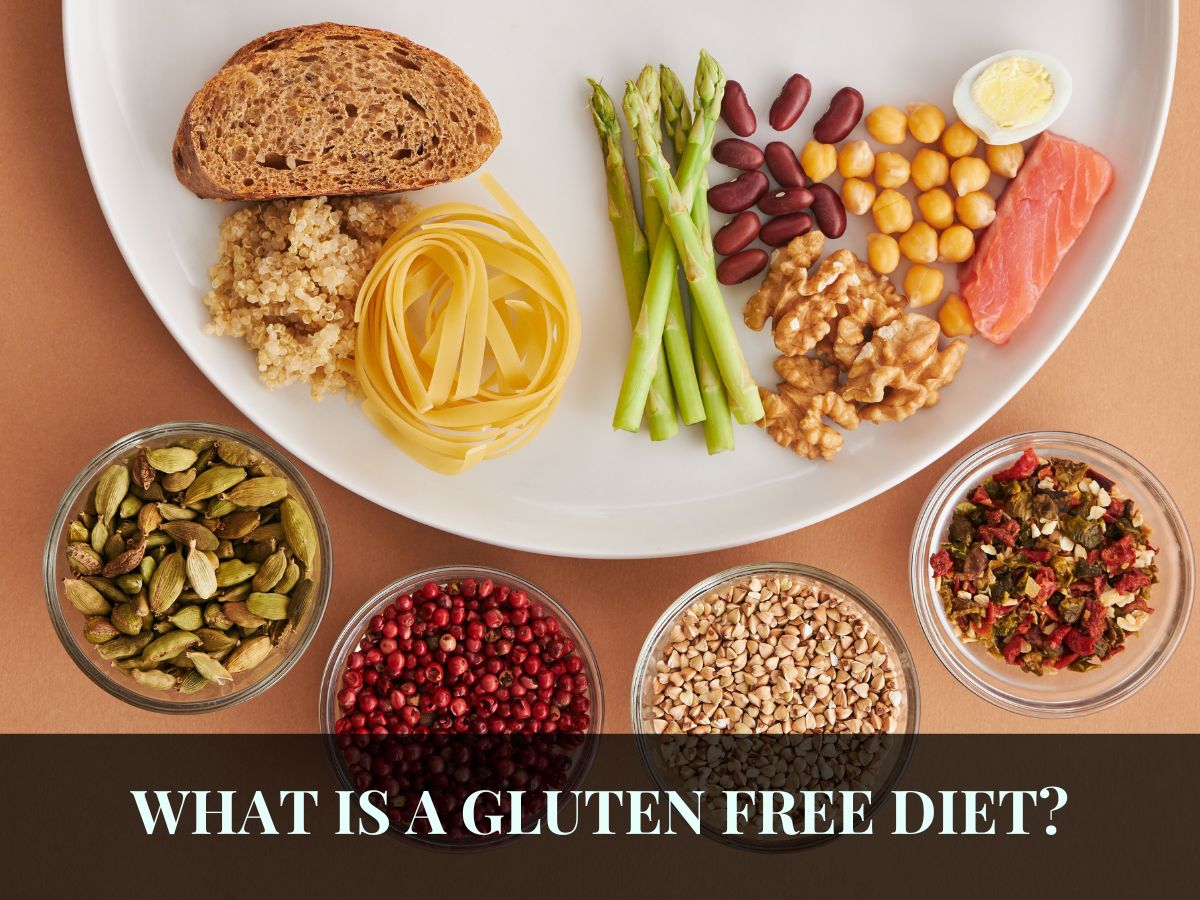What Is a Gluten-Free Diet? A Beginner's Guide

In recent years, you may have noticed an increasing trend towards gluten-free products in grocery stores, restaurants, and food blogs. Perhaps you've wondered what exactly a gluten-free diet entails and why it has gained such popularity. In this beginner's guide, we'll explore the concept of a gluten-free diet, its benefits, and considerations for those considering adopting this dietary lifestyle.
Understanding Gluten
To grasp the concept of a gluten-free diet, it's essential to understand what gluten is. Gluten is a type of protein found in various grains, including wheat, barley, and rye. It is responsible for the elasticity in dough, giving it a chewy texture. While gluten poses no harm to most people, individuals with certain medical conditions or sensitivities need to avoid it.
Who Might Benefit from a Gluten-Free Diet?
Celiac Disease: Celiac disease is an autoimmune disorder where the ingestion of gluten triggers an immune response, damaging the small intestine. People with celiac disease must strictly avoid gluten to prevent complications.
Non-Celiac Gluten Sensitivity: Some individuals may experience adverse reactions to gluten without having celiac disease. These individuals may benefit from a gluten-free diet to alleviate symptoms such as bloating, abdominal pain, or fatigue.
Wheat Allergy: In some cases, people may have a specific allergy to wheat proteins. A gluten-free diet can help those with wheat allergies avoid symptoms like hives, difficulty breathing, or digestive issues.
Other Health Conditions: Some individuals with conditions such as irritable bowel syndrome (IBS) or inflammatory bowel disease (IBD) may find symptom relief by adopting a gluten-free diet, although the evidence is mixed.
Adopting a Gluten-Free Diet
If you fall into one of the categories mentioned above and wish to follow a gluten-free diet, it's crucial to learn how to navigate your food choices effectively. Here are some essential steps to get started:
Educate Yourself: Familiarize yourself with foods that naturally contain gluten and those that are typically gluten-free. Grains like wheat, barley, and rye should be avoided, but alternatives such as rice, quinoa, corn, and oats (if labeled gluten-free) can be included.
Read Food Labels: When shopping for packaged foods, carefully read the ingredient lists. Look for "gluten-free" labels or indications of potential gluten sources, such as wheat flour or malt extract.
Experiment with Gluten-Free Recipes: Embrace the opportunity to explore new recipes and ingredients. Nowadays, numerous gluten-free alternatives are available, including flours made from rice, almond, coconut, or tapioca. You can find various online resources, cookbooks, and communities that offer delicious gluten-free recipes.
Be Mindful of Cross-Contamination: When preparing gluten-free meals, it's essential to avoid cross-contamination with gluten-containing ingredients or utensils. Thoroughly clean surfaces, use separate cookware, and be cautious when dining out.
Seek Professional Guidance: If you have a diagnosed condition like celiac disease, consulting a registered dietitian who specializes in gluten-related disorders can be immensely helpful. They can provide personalized advice, meal plans, and ongoing support.
Challenges and Considerations
While adopting a gluten-free diet can have significant benefits for those who need it, it's important to note a few potential challenges:
Nutritional Deficiencies: Some gluten-free processed foods may lack essential nutrients like fiber, iron, and B vitamins. Focus on incorporating naturally gluten-free whole foods like fruits, vegetables, lean proteins, and gluten-free grains to maintain a balanced diet.
Social Impact: Eating out or attending social gatherings may require additional planning, as gluten-free options may be limited. However, awareness and availability of gluten-free options are improving, and communicating your dietary needs to others can help.
Cost: Gluten-free products, particularly specialty items, can be more expensive than their gluten-containing counterparts. Prioritize whole, naturally gluten-free foods to keep costs manageable.
Conclusion
A gluten-free diet is not merely a passing fad but a necessary dietary approach for individuals with specific medical conditions or sensitivities. By understanding gluten and its potential impact on health, you can make informed choices about your diet. Remember to consult healthcare professionals and dietitians to ensure you're meeting your nutritional needs while enjoying a varied and delicious gluten-free lifestyle.
